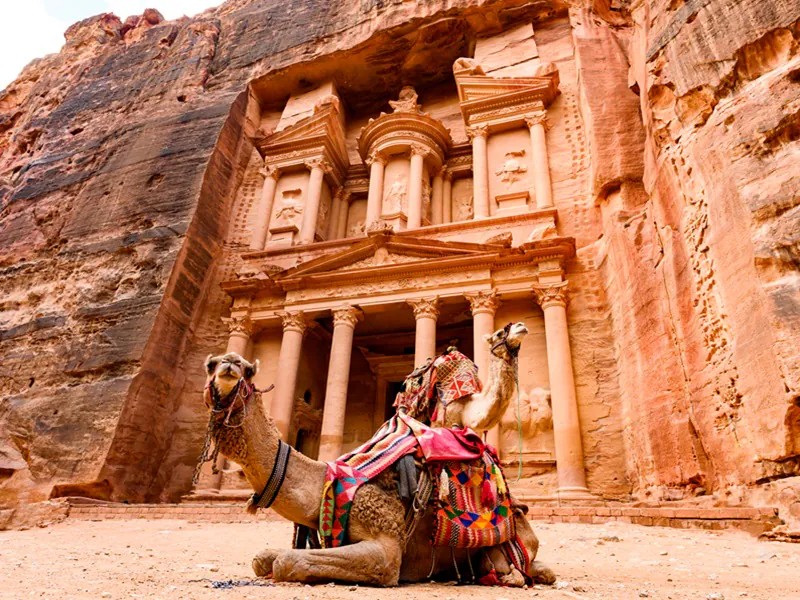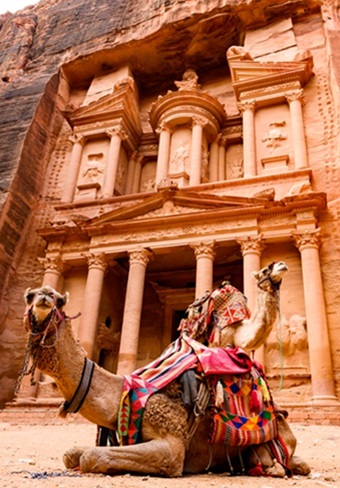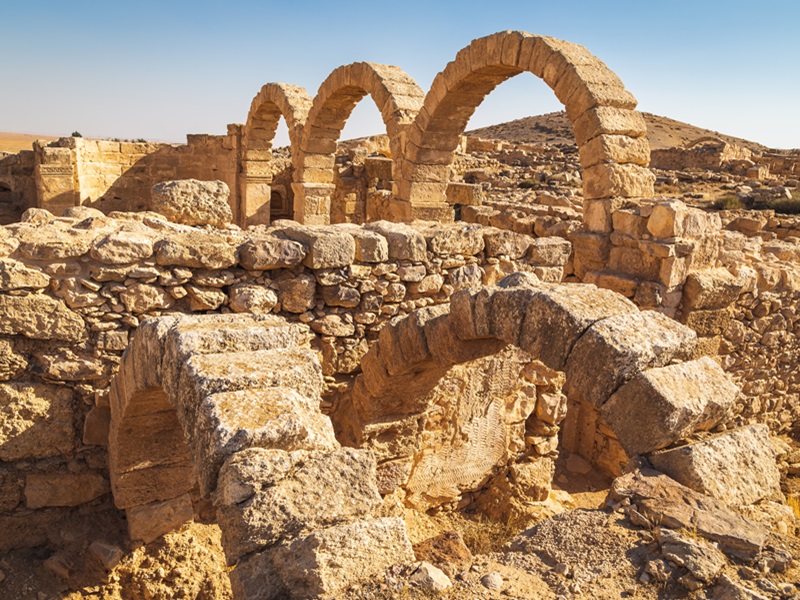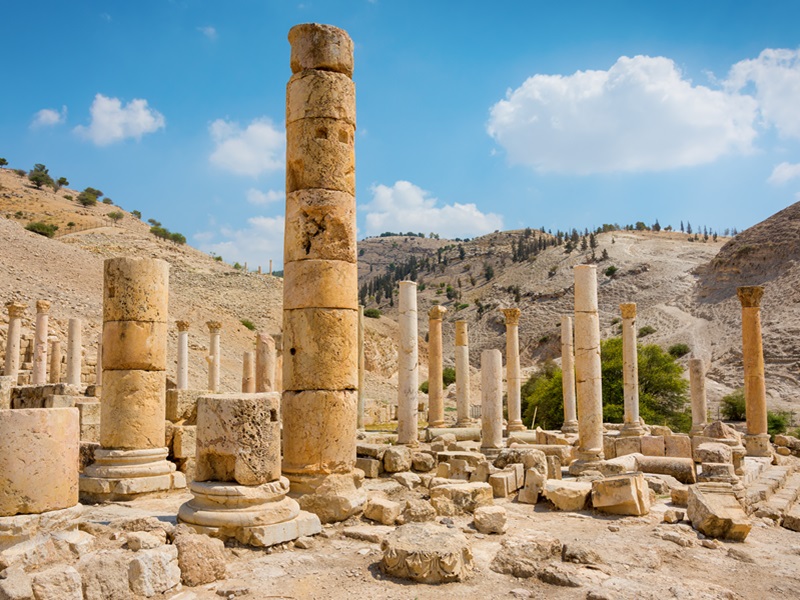Jerash (Gerasa)

History and Archaeology of Jerash
The Nabateans were the first to build a monument in the city, a temple to Dushara. In Roman times, a well-planned town developed around it, with intersecting streets in even angles. The City was also a member of the Decapolis, and one cannot rule out the possibility Jesus visited the City.
Gerasa, the Decapolis, and Jesus
Decapolis was a term used to describe a treaty of ten cities in the southern Levant during the Roman period. The Romans supported them as they shared a Greco-Roman cultural affiliation. Today, six cities are in Jordan (Gerasa, Gadara, Pella, Amman, Capitolias, and Raphana). Two are in Syria (Damascus and Canatha), and two are in Israel (Beit-Shean and Hippos-Sussita). The Gospels record Jesus visiting the Decapolis (e.g., Mark 7:31), but none of them are mentioned by name. Gerasa is mentioned in Mark 5:1 as the city next to where Jesus performed the miracle of the Swine. In Matthew’s version, the miracle occurred next to the town of Gadara.
Jerash after the Roman Period
In the 2nd century AD, Gerasa expanded, and reached a population of about 25,000. The city continued to thrive in the Byzantine period, but after the Muslim conquest, the town declined, and eventually abandoned.
Since 1925, several archaeological expeditions excavated at the site, uncovering a wealth of finds. The main architectural features include a Hippodrome and a triumphal arch from Hadrian’s times, well-preserved colonnaded streets and courtyards, two theatres, two colossal-size temples and a cathedral, a public fountain (nymphaeum), baths, several churches, and more.
Touring Jerash
Jerash is one of the most popular tourist attractions in Jordan. The site is open every day from 7:00 to dark. During July and August, the annual ‘Jerash festival’ takes place at the site. The combined Jordanian and Bedouin folk shows and modern music attract tourists and locals.
A tour of Jerash can be combined with a multi-day tour of Jordan.











